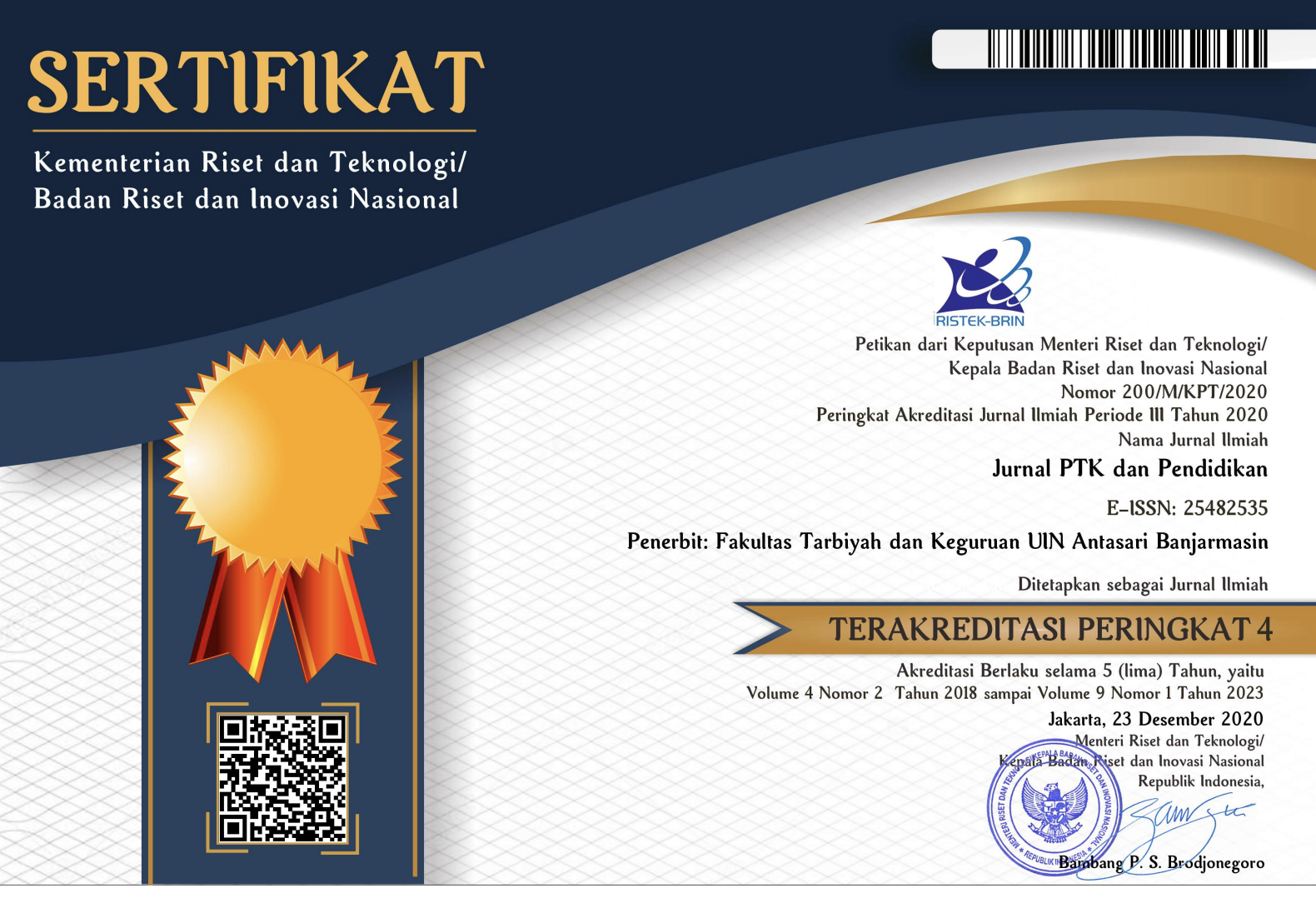Teacher in Overcoming Students Learning Dificult Mathemathic in Class IV Elementary Islamic Center Ukhuwah Banjarmasin
DOI:
https://doi.org/10.18592/ptk.v2i2.1028Abstract
This research uses descriptive method is to determine the problem and solve it based on the data, presenting data, and analyze it. The population in this study were all fourth grade students SDIT Ukhuwwat Banjarmasin and selected samples are class IV-A and IV-B classes totaling 72 students. In collecting the data, the technique used is interview, observation and documentation.The research found that the difficulties experienced by students that have difficulty completing a different matter with the sample questions provided by the teacher on word problems, difficulty recalling the formula, and the difficulty in calculating operations multiplication and division problems. Efforts of teachers in addressing students' mathematics learning disabilities that provides the motivation to learn, give variety of teaching methods, use of props, provide adequate exercise and repetitive, and provide repair or remedial program. Keywords: difficulty learning math, math teacherReferences
Abdurrahman, Mulyono. 2012. Anak Berkesulitan Belajar, Jakarta: PT Rieka Cipta
Ahmadi, Abu dan Supriyono, Widodo.2008.Psikologi Belajar, Jakarta:PT.Rineka Cipta.
Hadi, Suharto.2005.Pendidikan Matematika Realistik dan Implementasinya. Banjarmasin:Tulip Banjarmasin.
Sholeh, M.1998.Pokok-Pokok Pengajaran Matematika Sekolah. Jakarta: Depdikbud.
Simanjuntak Lisnawaty, dkk.1993.Metode Mengajar Matematika 1. Jakarta: Rineka Cipta.
Slameto.2003.Belajar dan Faktor-Faktor yang Mempengaruhinya. Jakarta: Rineka Cipta.
Sugiyono.2013.Metode Penelitian Kuntittif dan Kualitatif dan R & D. Bandung: Alfabeta
Downloads
Published
How to Cite
Issue
Section
License
- The right to publication of all journal material published on the Jurnal PTK dan Pendidikan website is held by the editorial board with the author's knowledge (moral rights remain the property of the author).
- The formal legal provisions for access to digital articles of this electronic journal are subject to the terms of the Creative Commons CC BY 4.0 DEED Attribution International (CC BY) license. This license enables reusers to distribute, remix, adapt, and build upon the material in any medium or format, so long as attribution is given to the creator. The license allows for commercial use.
- Printed and electronic published manuscripts are open access for educational, research and library purposes. In addition to these objectives, the editorial board shall not be liable for violations of copyright law.







